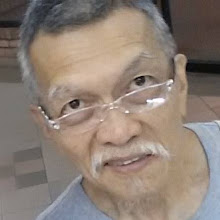This is the true joy in life, the being used up for a purpose recognized by yourself as a mighty one; the being a force of nature instead of a feverish, selfish little clod of ailments and grievances, complaining that the world will not devote itself to making you happy. I am of the opinion that my life belongs to the community, and as long as I live, it is my privilege to do for it whatever I can. I want to be thoroughly used up when I die, for the harder I work the more I live. I rejoice in life for its own sake.
~ George Bernard Shaw, 1856-1950 ~
~ George Bernard Shaw, 1856-1950 ~
Life, as we've come to think of it, goes on — despite the threat of climate change, energy crisis and economic decline. These will impact everyone in one way or another, whatever one believes. Much of my time has been spent trying to address these challenges at the local level as this is where i feel i can make a difference. I have continued to preach the Transition gospel to all who will listen. Consequently, i have given presentations in Maryland at Frederick, Towson, Greenbelt, Bethesda and Takoma Park, many of which now have budding Transition initiatives.In the same vein, our group is working to encourage local farming and food production in the District. We have a demonstration garden where we conduct workshops and we field volunteers to help with community gardens. This becomes increasingly critical as USDA data has shown that one in seven US households have difficulty putting food on the table while 40% of food in the US goes to waste. As droughts continue and energy costs increase, cheap, imported food will become more difficult to sustain. If this is true of the US, countries like Jamaica which depend on imports for much of its food supply need to take note.
Additionally, a diet high in animal fat, processed carbohydrates and refined sugar has been linked to increased risk of cardiovascular disease, diabetes and obesity. More people need to eat more fresh fruits, vegetables and plant-based foods. If you have not yet reduced your meat consumption, begin now.
 Above ground: The surface of the site was designed as a park by Frederick Law Olmsted, Jr., the leading landscape architect of his time. Tower-like structures are bins for storing clean sand for filtering the water in underground cells. The vines covering them were a part of Olmsted's design.
Above ground: The surface of the site was designed as a park by Frederick Law Olmsted, Jr., the leading landscape architect of his time. Tower-like structures are bins for storing clean sand for filtering the water in underground cells. The vines covering them were a part of Olmsted's design.Another project which i've adopted is McMillan Park, the 25-acre site of DC's former water filtration plant. Underground there are 20 acres of catacomb-like cells which commercial developer plans call for demolishing to erect housing and shopping facilities. As an environmental designer and wearing my Ecolocity hat, i have proposed a Low Impact Development (LID) approach whereby the green space is conserved and given to urban farming and the cells are restored and repurposed for light industrial, agro-processing and retail use.
 This could include a glassworks, utilising the tons of sand on the site to make bottles for filtered water from re-commissioned cells, possibly wine from grapes grown on the surface, beer and honey. Cows grazed above could also provide milk for cheese-making below. Mushroom growing is another possibility in the naturally cool, dark caverns. An existing underground stream could be exposed and developed as an urban beach, completing the creation of a destination that would bring delight and pride to the area's residents and countless tourists to replenish the depleted District coffers.
This could include a glassworks, utilising the tons of sand on the site to make bottles for filtered water from re-commissioned cells, possibly wine from grapes grown on the surface, beer and honey. Cows grazed above could also provide milk for cheese-making below. Mushroom growing is another possibility in the naturally cool, dark caverns. An existing underground stream could be exposed and developed as an urban beach, completing the creation of a destination that would bring delight and pride to the area's residents and countless tourists to replenish the depleted District coffers.








